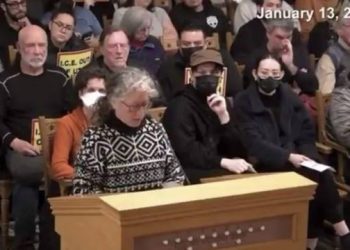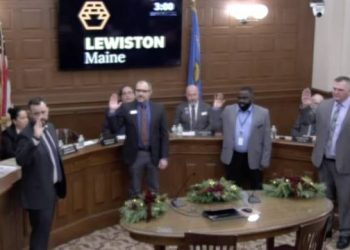The National Oceanic and Atmospheric Administration (NOAA) is charged with providing weather forecasts, severe storm warnings, climate monitoring, fisheries management, coastal restoration, and marine commerce support. It’s a task grounded in science and factual data. However, under the Biden administration, there’s been an unusual move to incorporate “Indigenous Knowledge” into NOAA’s operations.
According to a report by the Washington Free Beacon, this push is part of a broader initiative to introduce what critics call pseudoscience into government processes. NOAA Administrator Rick Spinrad announced a partnership with the American Indian Higher Education Consortium (AIHEC), aimed at building climate resilience and combining Indigenous Knowledge with Western science.
“Indigenous Knowledge has made it possible for Indigenous Nations to persist and thrive for millennia,” Spinrad said, emphasizing its importance in informing the nation’s environmental stewardship.
Ahniwake Rose, AIHEC president, echoed Spinrad’s sentiments, stressing that the partnership would empower tribal colleges and universities to lead in addressing climate change by merging indigenous and Western scientific approaches.
While these statements sound idealistic, they have led to some concerns about the implications for NOAA. Critics like writer Joseph Simonson argue that integrating such knowledge into scientific work could undermine the validity of more rigorously established scientific methods. Simonson noted that Indigenous Knowledge, in some cases, has been criticized as pseudoscience because it often involves unverified or spiritual beliefs about natural phenomena, making it at odds with scientific inquiry.
For example, one of the areas of focus for this partnership is integrating Western science and Indigenous Knowledge for better climate adaptation strategies. Yet, this broad concept raises questions—what specific practices or beliefs qualify as “Indigenous Knowledge,” and how would they affect the integrity of NOAA’s scientific approach?
In response to these developments, President Biden had issued a November 2022 memo urging federal agencies to incorporate “Indigenous Knowledge” into decision-making processes. The memo encouraged consultation with “spiritual leaders” and the rejection of “methodological dogma,” further confusing how these approaches will blend with science-driven methods, especially in fields like weather forecasting.
The issue also arises with traditions like the rain dance, a practice widely recognized in some Indigenous communities but seldom connected with actual weather patterns. For example, while the Ohlone tribe still performs rain dances, they are not a universal practice across all Indigenous groups.
Critics question whether practices like this could become part of NOAA’s “Indigenous Knowledge” and the consequences it might have on weather prediction. If NOAA adopts beliefs grounded in unscientific or ritualistic practices, it could have a long-term effect on public trust in government agencies that operate on scientific facts.
Ultimately, the Biden administration’s push to integrate “Indigenous Knowledge” into scientific roles like weather forecasting raises concerns about the future balance between science and tradition—and whether it’s truly a step forward or a politically motivated move to devalue Western methodologies.
 Telegram is where we really talk. Don't miss out!
Telegram is where we really talk. Don't miss out!







